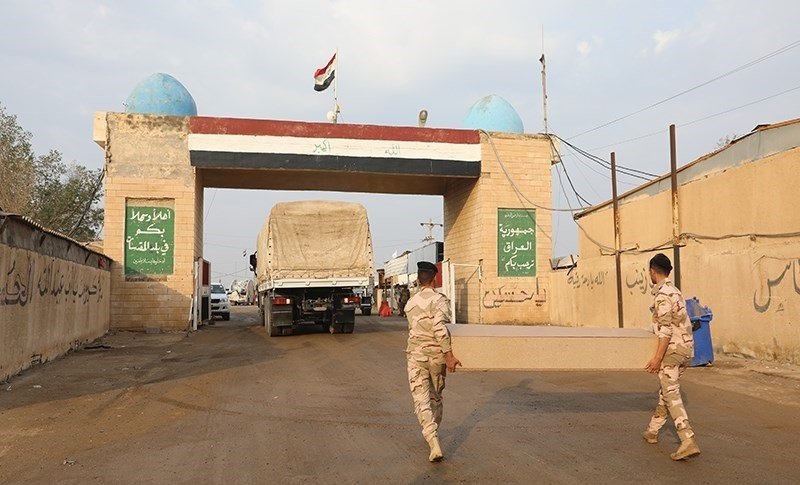China: The Great Wall of Restrictions

China, a country famous for its vast landscapes and deep history, is showing signs of quietly closing its doors to the world. Since the global pandemic, the government has doubled down on strict entry requirements and health checks, making it more challenging than ever for outsiders to visit. Recent moves include limiting tourist access to mega-cities like Beijing and Shanghai during peak travel seasons, a step that insiders say is about easing crowding and protecting public health. Domestic tourism is now heavily promoted, and local travelers are encouraged to explore their own backyard rather than leave the country. International visitor numbers, once soaring, have dropped dramatically; industry experts warn that China’s focus on internal stability could soon lead to even more barriers. With tourism revenues previously approaching $1 trillion, any clampdown would send shockwaves through the industry. Still, health and security now seem to outweigh economic gains, and many believe China could soon be almost impossible for most foreigners to freely visit.
Russia: A Shift in Focus

Russia has undergone a dramatic transformation in its approach to foreign tourism, largely driven by its geopolitical climate. The ongoing conflict in Ukraine has made Russian authorities wary of foreign visitors, especially from countries imposing sanctions. In 2024, border controls were ramped up, leading to longer wait times and more invasive checks at entry points. The government has openly announced its intention to boost domestic tourism, with incentives and marketing campaigns aimed squarely at Russian citizens. Foreign visitor numbers have plummeted by a staggering 70% since 2022, leaving many hotels and attractions struggling to adapt. Security is now the government’s top priority, and many worry that the country will soon shut its doors even tighter. For the first time in decades, Russia feels less like a bridge between East and West and more like a fortress focused on its own people.
North Korea: The Unyielding Fortress

North Korea’s reputation as the world’s most closed-off country is only getting stronger. Reports in 2024 confirm that Pyongyang is further tightening its grip on who comes in and out, with new rules allowing only guided tours to a handful of approved sites. For most foreigners, independent travel is out of the question, and the state’s iron-fisted control means even the most adventurous travelers face endless restrictions. “Access is now more limited than ever,” said one expert on the region, noting that the government values security and secrecy over any potential tourism revenue. The tiny trickle of visitors that once brought foreign currency is drying up as rules become even more rigid. Economic needs seem to play second fiddle to the regime’s desire for total control and national self-reliance. In the near future, North Korea may simply shut the door entirely, erasing the line between “difficult to visit” and “impossible.”
Venezuela: A Nation in Crisis

Venezuela’s vibrant beaches and lush rainforests once drew travelers from around the world, but those days feel like a distant memory. The country’s deep economic and political turmoil has forced the government to impose tough border controls and travel restrictions. Over the past decade, the tourism sector has shrunk by more than 80%, with many hotels, resorts, and even national parks closing their doors for good. Safety concerns are now at the forefront, as crime rates soar and basic services become unreliable or unavailable. Even the most seasoned travelers are thinking twice about venturing in. The government’s priorities have shifted inward, focusing on survival and stability rather than opening up to the world. Unless there’s a dramatic turnaround, Venezuela may soon become a place where foreign visitors are simply not welcome.
Afghanistan: The Ongoing Turmoil

Afghanistan’s rugged mountains and ancient cities once had the power to enchant, but ongoing conflict has made it one of the world’s most inaccessible destinations. The return of Taliban rule has changed everything, with the government now restricting foreign visitors to a handful of areas deemed “safe”—a term used loosely at best. International organizations warn against all travel, and most embassies have closed or reduced services. Infrastructure is crumbling, and even basic transportation is fraught with risk. The few travelers who do arrive are usually aid workers or journalists, not tourists. The country’s tourism sector, which was slowly starting to recover, has collapsed almost overnight. For now, Afghanistan is focused on its own survival, with little interest in welcoming outsiders.
Myanmar: Political Unrest and Travel Bans

Myanmar’s golden temples and vibrant markets have long been a draw, but political chaos since the 2021 coup has changed the landscape for visitors. New travel bans and military checkpoints have made it nearly impossible for foreigners to see much beyond the capital. Reports from 2024 highlight a surge in violence and instability, causing many countries to update their travel advisories and warn citizens to stay away. Popular tourist destinations like Bagan and Inle Lake have seen visitor numbers drop dramatically, with hotels and tour companies shutting down. The government, facing protests and violent clashes, views foreign visitors as a potential security risk. Local businesses that once relied on tourism are struggling to survive, and the sense of welcome that once defined Myanmar has faded. The country’s immediate future looks closed-off, with stability taking priority over tourism.
Iran: A Cautious Approach

Iran has always been an alluring destination for those seeking adventure and history, but fresh restrictions are making it harder to visit. In 2024, authorities introduced stricter visa requirements and more thorough screening of incoming travelers. Ongoing political tension with Western nations has only heightened scrutiny, with many embassies warning their citizens about potential risks. The tourism industry, which tried to stage a comeback in recent years, now faces more hurdles than ever. Many travelers report difficulties in obtaining visas, and those who do enter the country often face tight monitoring. The government’s new measures reflect a desire to control the narrative and safeguard against perceived threats. Unless diplomatic relations improve, Iran may soon be a place where only the most determined travelers can gain entry.
Syria: A War-Torn Landscape

Syria’s ancient ruins and bustling cities once drew crowds from around the world, but years of civil war have left the country battered and wary of outsiders. In 2024, new government policies further restricted access to large parts of the country, citing ongoing violence and instability. International organizations continue to issue high-level travel warnings, and many historic sites lie in ruins or remain under military control. The once-thriving tourism sector has been decimated, with few hotels operating and almost no infrastructure for foreign guests. Safety is the overriding concern, and both locals and government officials are cautious about encouraging outside visitors. As the conflict drags on, Syria’s doors remain firmly closed to most of the world.
Libya: A Nation in Limbo

Libya, with its stunning Mediterranean coastline and ancient cities, is a study in contrasts—beautiful, yet deeply unstable. The government announced in 2024 that access for foreigners would be tightly controlled and restricted to specific regions, all in the name of safety. Travel advisories from multiple countries warn against all but essential travel, citing threats of violence and kidnapping. The tourism sector, which had shown tentative signs of recovery, is now in freefall as security concerns mount. Hotels, museums, and archaeological sites are either closed or barely functioning, waiting for better days. Libya’s focus is now on internal reconciliation and rebuilding, with little energy left for welcoming tourists. The mood in the country is one of caution, and for outsiders, the message is clear: now is not the time to visit.
Haiti: A Struggling Nation

Haiti’s rich culture and tropical beauty have always been tempered by hardship, but the past few years have been especially tough. The government imposed new travel restrictions in 2024, responding to a wave of violence and ongoing political turmoil. The tourism industry, once a rare bright spot, has nearly ground to a halt, with hotels and attractions shuttered or abandoned. Infrastructure challenges make even basic travel risky, and foreign embassies frequently warn their citizens to avoid the country. Many locals who once worked in tourism are now forced to seek other ways to make ends meet. The dream of a vibrant, tourist-friendly Haiti feels distant, as the country focuses all its attention on recovery and stability. For now, Haiti stands as a sobering example of how quickly a nation’s welcome can fade.






